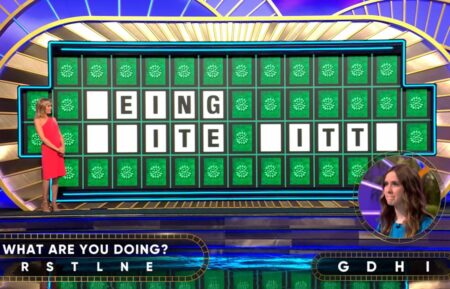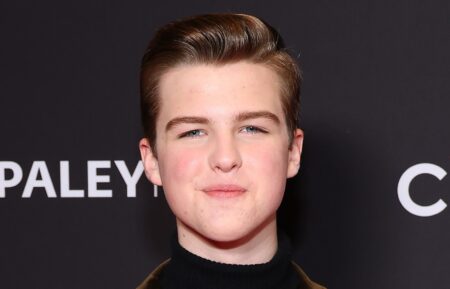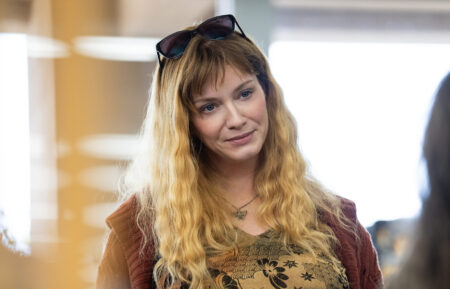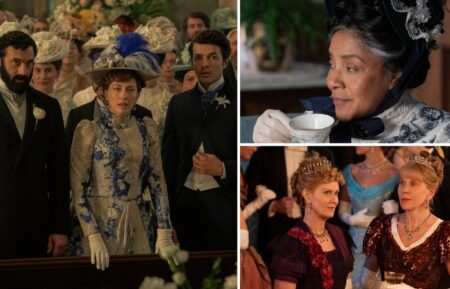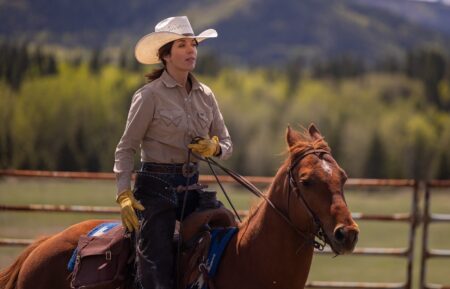Jada Pinkett Smith on Talking Generational Trauma With Demi Moore on ‘Red Table Talk’
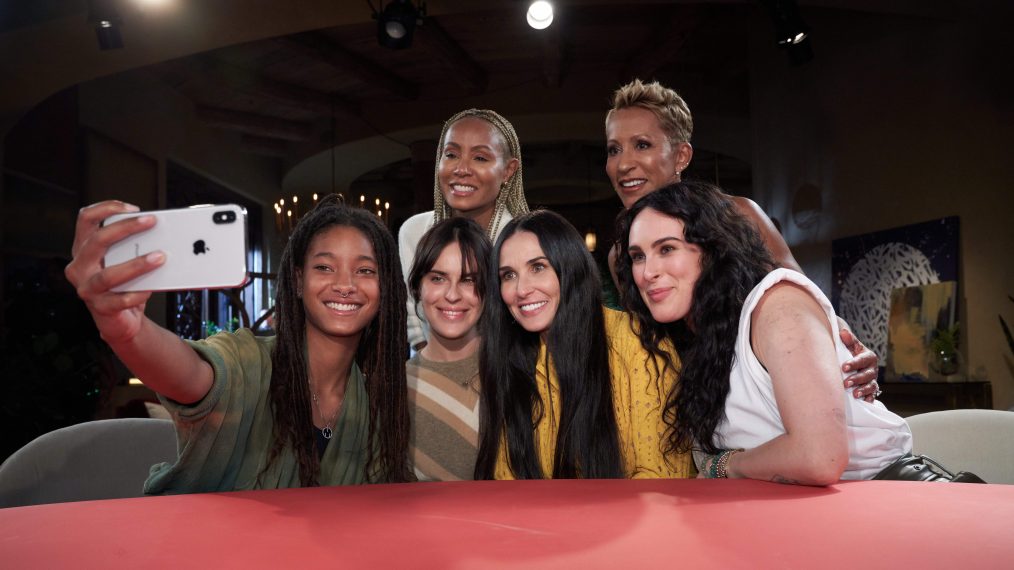
Q&A
The latest episode of Red Table Talk on Facebook Watch is one of the most moving installments to date, as Jada Pinkett Smith brings on actress Demi Moore and her daughters, Tallulah and Rumer Willis, for an emotional conversation about generational trauma.
Moore opens up about the impact her mother’s abuse had on her and how that was passed down to her own, now-grown children. TV Insider spoke with Pinkett Smith about the candid and powerful interview.
Why was it important to bring Demi Moore on for this latest episode of Red Table Talk on Facebook Watch?
Jada Pinkett Smith: Well her representatives called and wanted her to come and talk about her book, Inside Out. Then I read her book and was like… the part of the book that was the most inspiring to me and most intriguing was the generational trauma of it all, how trauma is passed from parent to child. Demi’s relationship to her mother, how her mother’s addiction affected her and her mother’s transgressions affected her, all of that including Demi’s own addictions affected her own children, because in my family, we’re healing from generational trauma, as well. I thought that it would be a really deep conversation to have between these two families of women who are on parallel journeys.
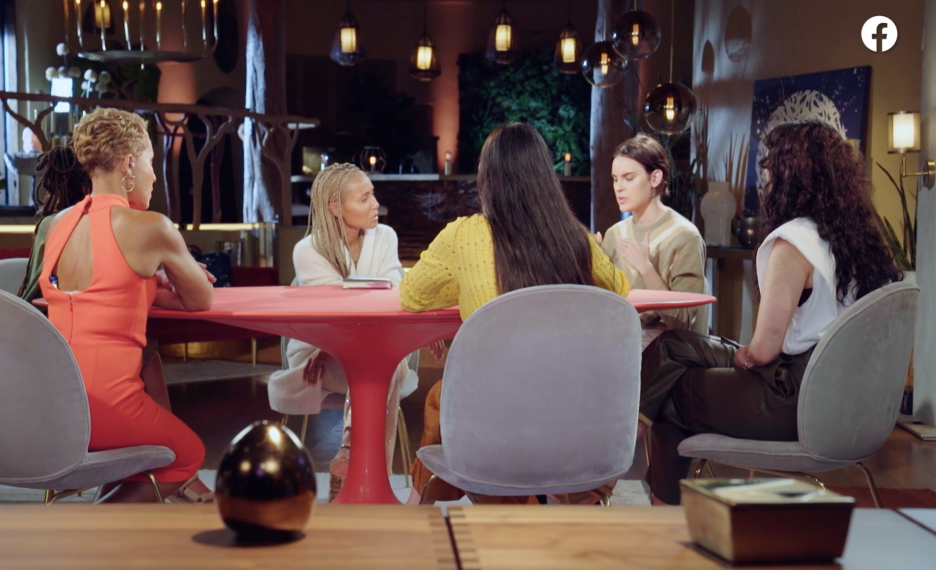
Facebook Watch
That’s so beautiful. How did this conversation change your perspective of Demi as a person, versus what you’d known beforehand?
[Laughs] Well, I’ve always known that Demi was gangster as hell. But the idea that she came to the table with the level of transparency that she did with her daughters is supremely courageous. And I think she knows that not only is it going to assist in her healing process and Scout, Rumer, and Tallulah’s healing process, but also in the healing process of other parents-child relationships that have complex dynamics.
Even I at the table had a healing moment with Willow because of the transparency of Scout, Rumer, Tallulah, and Demi … [I was] affected in my own healing process by the conversation. So I’m just grateful they blessed us with their presence.
That’s wonderful. As you’re both mothers to daughters who grew up in the public eye, were you able to connect on that?
God yeah! And then Tallulah, Rumer, and Willow were able to connect on being children who were raised in the public eye. There was so much relatability at that table, so many parallel journeys between Demi and I and even myself, Rumer, Tallulah, my mother, Demi — you name it.
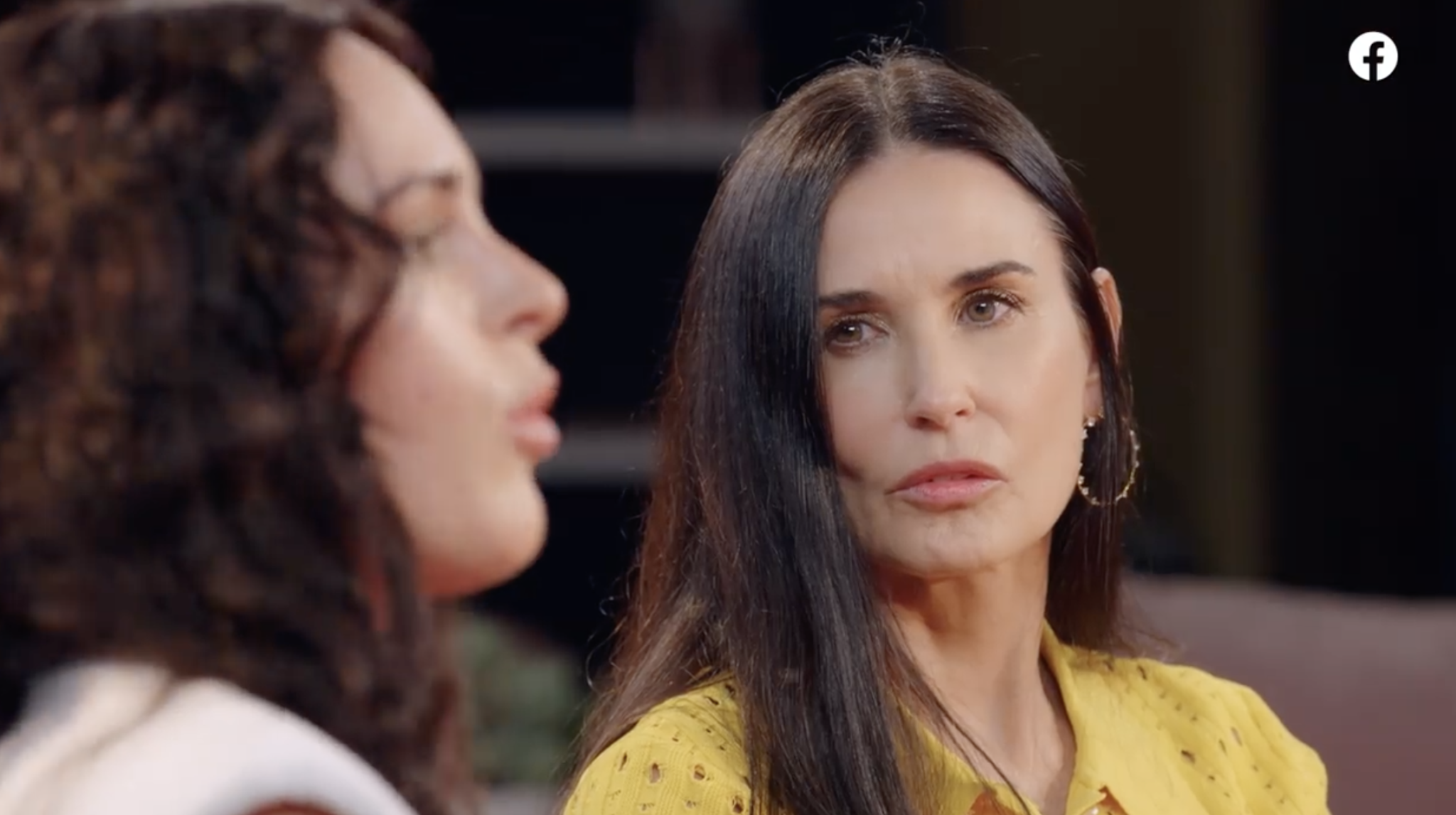
Facebook Watch
Did you discuss how you handled parenting in Hollywood?
We really didn’t get into that but Tallulah, Rumer and Willow did discuss a bit — and I don’t think we kept it in the episode, actually — but they did discuss what it’s like being raised under the harsh lights of Hollywood and how stressful and difficult it has been.
In the interview, Demi opens up about her relationship with her mother and the impact it had on her. Were you able to relate at all?
Absolutely I was able to relate. Demi is a child of an addict, and so am I. And so, I totally relate to her journey and her experience with her mother. My experience with my mother wasn’t extreme but it was still trying, challenging, and painful.
The concept for Red Table Talk is so brilliant, conveying the perspective of three women from three different generations. What were some of the must-cover topics you knew you wanted to discuss when you first started the show?
The first topic that was really important to me was talking about motherhood through the lens of being a bonus mother. The first episode was me talking with [husband Will Smith’s son from a previous relationship] Trey’s mother Sheree. I thought that having a bonus family and how we all got there, how Willow saw it, how my mother saw it — you know, from three generations — was really important because there are so many families going through that.
Then, [I wanted to talk] on issues around body image, and loss through the eyes of three different generations. I think it was really important to talk about topics that never leave the conversation of women, to talk amongst ourselves from a three-generational perspective.
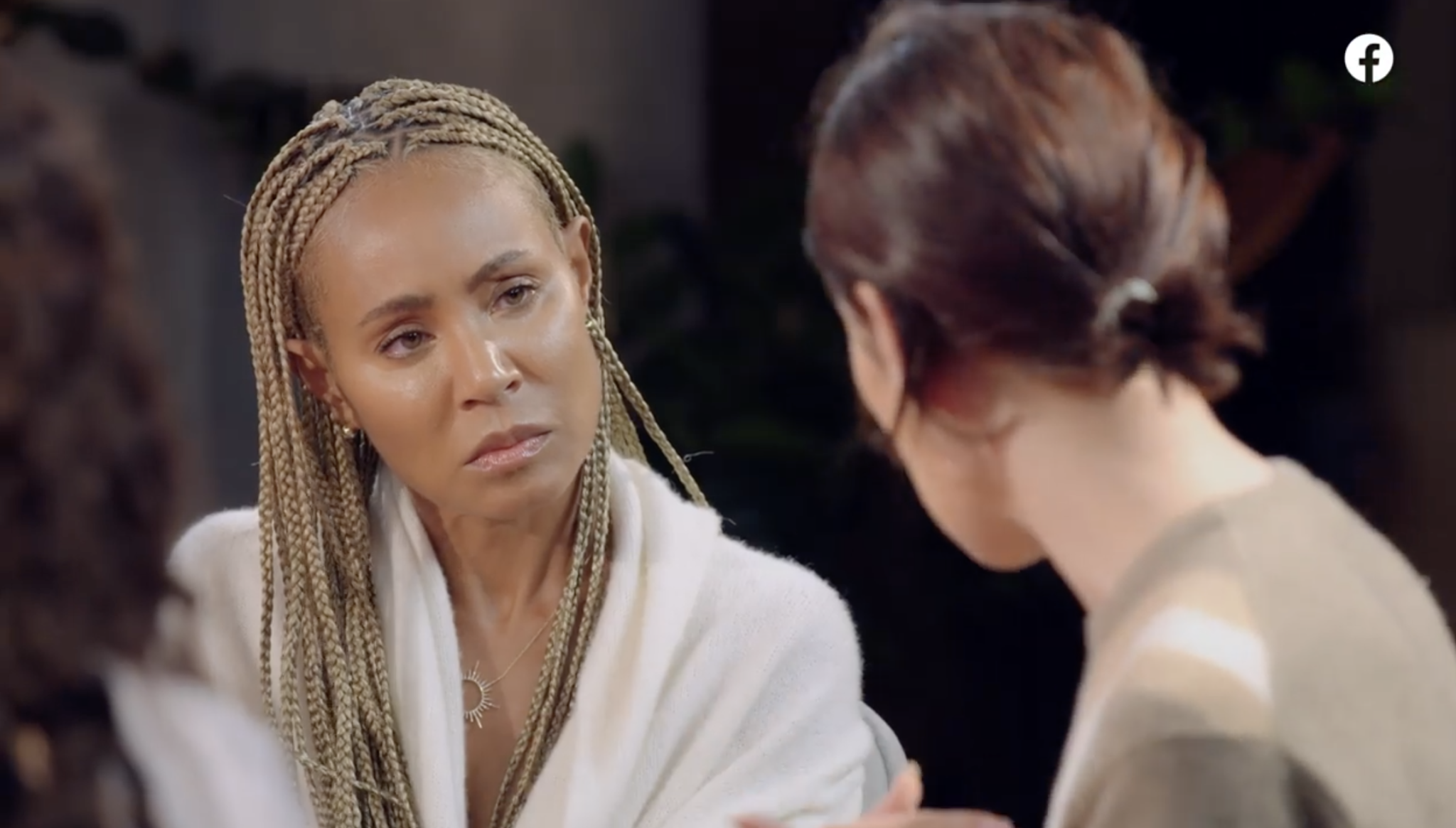
Facebook Watch
Going forward, are there any dream guests you’re still hoping to get on the show?
I never put myself in a dream guest — I never set myself up like that. You can’t do that with the Red Table because people have to be ready. I just had a guest drop out today.
Oh no!
Yes! Because people think about it. They go “Mm.. I thought I was ready but I’m not.” You know? … I totally understand, it’s never an upset. I’ve had people come to the table and I had to scratch shows. So you can’t ask people to come to the table, people have to call. We will ask un-spotlighted people, people that have intriguing stories. But asking celebrities, spotlighted people? You don’t do that.
We hear Red Table Talk is being opened up to people across the country. Can you tell us more about that?
It’s already happening — [we have the] Red Table Talk groups are happening on Facebook. You have Red Table Talk Virginia, Memphis Sisters, you have the Red Table Talk group in California, you have all these different Red Table Talk communities that are developing all around the country on their own. And what we have is the OG group that we do a call with every month. But, yes I am so happy that people are taking the initiative of creating their own Red Table Talks.
Red Table Talk, Streaming Now, Facebook Watch




